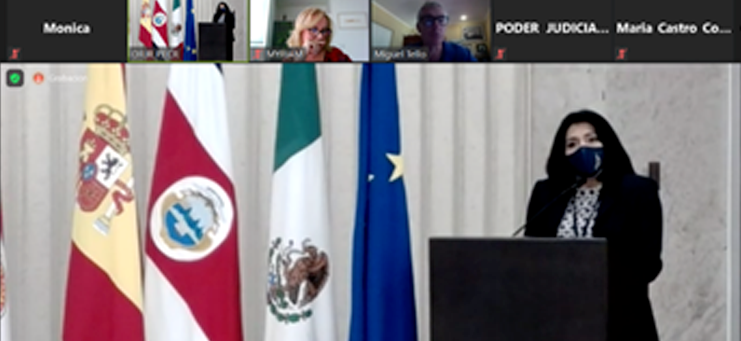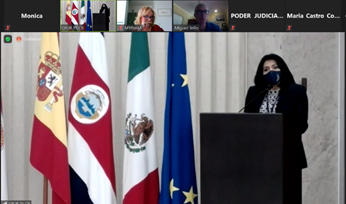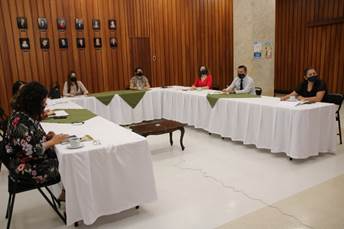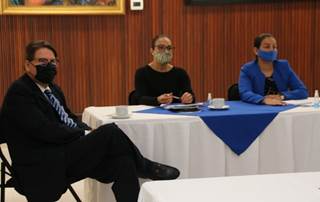El presente sitio Web ha sido elaborado con la asistencia de la Unión
Europea. Su contenido es responsabilidad exclusiva del Programa ADELANTE y en ningún caso debe
considerarse que refleja los puntos de vista de la Unión Europea.
DATOS LEGALES
Dominio : http://www.adelante-i.eu
Titular : DT Global
Domicilio social: Edificio Iberia Mart I, Calle Pedro Teixeira 8, 4to piso, 28020 Madrid, España
Tfno. : +34 915 48 77 90
E-mail : CONTACTO
CONDICIONES GENERALES DE UTILIZACIÓN
Limitaciones de uso
El acceso a este sitio web tiene carácter gratuito y su visualización
no requiere previa suscripción o registro alguno.
Los usuarios deberán utilizar la información contenida en este sitio
web en cumplimiento de la legislación aplicable en cada caso, respetando los derechos de propiedad
intelectual de ADELANTE o terceros.
El usuario no realizará a través de los servicios que pone a su
disposición ADELANTE ninguna acción que cause daño o alteraciones en los contenidos, ni
obstaculizará el buen funcionamiento del sitio web. No causará problemas técnicos de ninguna índole,
transfiriendo elementos susceptibles de portar virus informáticos o de dañar, interferir o
interceptar total o parcialmente la presente web.
En ningún caso ADELANTE será responsable del uso inadecuado de este
sitio web o de sus contenidos, o de las consecuencias que dicho uso pueda originar.
Limitación de responsabilidad
ADELANTE no garantiza que sus páginas se encuentren operativas, ni que
sus contenidos sean completos, exactos o fiables en todo momento. ADELANTE se reserva el derecho a
modificar en cualquier momento, sin previo aviso, los contenidos de este sitio web y las Condiciones
Generales de Acceso.
En caso de efectuar operaciones de mantenimiento, reparación,
actualización o mejora de los servicios, ADELANTE tiene el derecho a suspender temporalmente y sin
necesidad de preaviso el acceso al presente sitio web, así como a reservarse el derecho de
prestación o cancelación de los servicios, sin perjuicio de lo cual procurará ponerlo en
conocimiento de los usuarios, siempre que las circunstancias así se lo permitan.
De esta forma, se excluye cualquier responsabilidad por los daños y
perjuicios de cualquier naturaleza que puedan derivarse de la falta de disponibilidad o de
continuidad del funcionamiento del sitio y de sus servicios y la utilidad que los usuarios hubieran
podido atribuir al presente sitio web. Vínculos o enlaces hipertextuales
Ningún tercero podrá establecer relación de 'framing' entre sus páginas web y el presente sitio web.
En el caso de los enlaces incluidos en el presente sitio web dirigidos
a otros sitios no gestionados por ADELANTE, esta institución manifiesta que no ejerce control alguno
sobre dichos sitios, ni es responsable del contenido de los mismos.
Los vínculos que este web pueda contener se ofrecen, únicamente, a
modo de referencias informativas, sin ningún tipo de valoración sobre los contenidos, propietarios,
servicios o productos ofrecidos desde los mismos.
Otras condiciones
Las presentes Condiciones Generales de Utilización y todas las
relaciones que se establezcan entre el usuario y ADELANTE se regirán por la legislación española.
La utilización del sitio web implica la aceptación de las anteriores
Condiciones Generales de Utilización.
Protección de datos personales
La cumplimentación de datos personales no es obligatoria. El usuario
que facilite sus datos personales es el único responsable de la veracidad y corrección de los datos
incluidos, quedando ADELANTE exonerado de cualquier responsabilidad al respecto.
Los datos personales que el usuario del sitio web pueda proporcionar
pasarán a formar parte de un fichero automatizado propiedad de ADELANTE que será tratado conforme a
la Ley Orgánica 15/1999, de 13 de diciembre de Protección de Datos Personales.
Mediante el suministro de sus datos, el usuario autoriza el
tratamiento automatizado de los mismos con los fines indicados por el sitio web. El usuario podrá
ejercer en cualquier momento su derecho de acceso, rectificación, cancelación y oposición de sus
datos.
ADELANTE - Cooperación Triangular - EU-ALC




